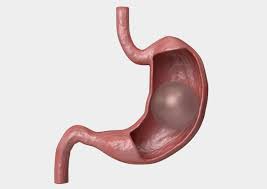Anti-Reflux Surgery Information
If you are experiencing gastroesophageal reflux disease (GERD) and medication is not working effectively, you might be considering anti-reflux surgery. This procedure is commonly performed by a surgeon to alleviate the symptoms of GERD, which include heartburn, regurgitation, and difficulty swallowing. In this article, we will provide you with detailed information about anti-reflux surgery, its types, benefits, risks, and how to prepare for the procedure.
What is Anti-reflux Surgery?
Anti-reflux surgery is a surgical procedure that aims to alleviate the symptoms of GERD. It is also known as fundoplication. The surgery involves wrapping the upper part of the stomach around the lower esophagus to create a new valve that prevents stomach acid from flowing back into the esophagus. The procedure is performed under general anesthesia, and the patient is usually discharged on the same day or the next day.
Types of Anti-reflux Surgery
There are Two Main Types of Anti-Reflux Surgery:
Laparoscopic Nissen Fundoplication: This is the most common type of anti-reflux surgery. It involves making small incisions in the abdomen and inserting a laparoscope (a thin, flexible tube with a camera) and surgical instruments. The surgeon then wraps the upper part of the stomach around the esophagus and secures it with sutures.
Laparoscopic Toupet Fundoplication: This is a modified version of the Nissen Fundoplication. It involves wrapping only the back part of the stomach around the esophagus. This procedure is less likely to cause side effects such as difficulty swallowing, gas bloat syndrome, and diarrhea.
Benefits of Anti-reflux Surgery
The benefits of anti-reflux surgery include:
Relief from GERD symptoms such as heartburn, regurgitation, and difficulty swallowing.
Elimination or reduction of the need for medication to control GERD symptoms.
Improved quality of life due to the elimination of GERD symptoms.
Risks of Anti-reflux Surgery
Like any surgery, anti-reflux surgery has risks. These risks include:
Adverse reactions to anesthesia
Bleeding
Infection
Injury to the esophagus or other organs
Gas bloat syndrome
Difficulty swallowing
Diarrhea
Recurrence of GERD Symptoms
How to Prepare for Anti-reflux Surgery
Before the surgery, the surgeon will perform a complete physical exam and review the patient's medical history. The surgeon will also conduct a series of tests to determine the severity of GERD and the patient's suitability for the procedure.
To Prepare for Anti-Reflux Surgery, The Patient will be Required to:
Stop smoking and drinking alcohol for several weeks before and after the surgery.
Avoid eating or drinking anything for six to eight hours before the surgery.
Arrange for someone to take them home after the surgery.
Follow the surgeon's instructions regarding medication use.
Conclusion
Anti-reflux surgery is an effective treatment for GERD that can provide long-term relief from symptoms. However, like any surgery, it has risks that should be carefully considered. If you are considering anti-reflux surgery, talk to your doctor to determine if it is right for you.




Comments
Post a Comment